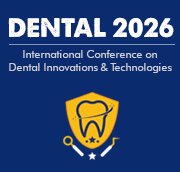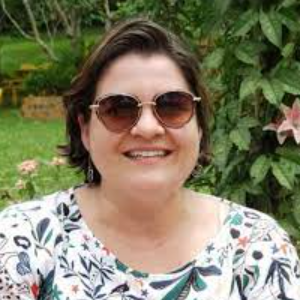Title : Oral Health in the Western Amazon: Challenges and advances with PlanificaSUS
Abstract:
In 2019, the Health Care Plan (PAS) was agreed upon in the State of Rondônia as a proposed methodology to overcome the fragmentation of the current care model in the SUS. This PlanificaSUS methodology was proposed by the National Council of Health Secretaries (CONASS) to overcome the fragmentation and low resolution of the current healthcare model in the Brazilian public health system. Based on clinical guidelines of the Care Model for Chronic Conditions and theoretical framework of the social construction of Primary Health Care (PHC). PlanificaSUS aims to promote the development of skills, abilities and attitudes necessary for technical and managerial teams to organize, qualify and integrate the work processes of Primary Health Care (PHC), Specialized Ambulatory Care (AAE), triggering changes in the modus operandi of the processes, in order to improve health services to advance assistance to SUS users in an integrated and integrated way between Primary Care and Specialized Outpatient Care. To this end, the strengthening of PHC is chosen as a priority, understanding it, as the gateway/access of users to the Unified Health System (SUS), to be the fundamental axis for this change. In the first 2 years of planning, 4 stages of the methodology proposed by Hospital Albert Einsten were developed, involving PHC and AAE: The integration of PHC and AAE into a Network; Territory and Population Base Management; Access to RAS; and Care Management. For that, in addition to a lot of training for the multidisciplinary teams working in both spheres, a lot of articulation, negotiation, monitoring of managers and staff was necessary in order to make the necessary adjustments possible, both technological and operational. During all stages of implementation in the Madeira Mamoré Health Region (region that surrounds the state capital), approximately 2,300 health professionals participated in the Workshops and 300 in the Tutorial Workshops (held in 08 units of the PHC and 01 of the AA). During these events, the change of paradigms was notorious, the breaking of inertia to face the problems, both of the population assisted and also of the teams themselves. This confrontation gained strength during the pandemic, where the population of the areas covered by the laboratory units were able to verify, despite the impacts on the flow of the units due to isolation, a more calm, safe, planned and effective maintenance of the service processes. This new model of “doing” has provided a great advance in the work process and in the organization of Primary Health Care, increasing population coverage, the number of consultations and procedures carried out, tightening the interactions between basic and specialized care and providing greater resolution to the demands of the population. Thus, this lecture aims to report the contributions of the PlanificaSUS project in the scope of primary care in Porto Velho/RO. This is an experience report type study, carried out throughout the development of the project stages within the Laboratory Units of the capital of Rondônia.
Audience takeaway notes:
- PlanificaSUS is a methodology aimed at developing skills, abilities, and attitudes necessary for technical and managerial teams to organize, qualify and integrate work processes. This methodology proved to be effective in expanding coverage, and promoting quality and safety in health care. Its disclosure can bring to light discussions about improvements in state and municipal services.
- PlanificaSUS is a strategy that demonstrates high potential for the qualification of health services and their organization. During its implementation, it brings to light debates about the organization of PHC in a network with the SEA and, consequently, benefits thousands of users of these services. The joint action of APS and AAE managers and professionals has contributed to the organization of this network in order to make it more effective and with higher quality.
- This work can and should be tested and implemented in different Brazilian municipalities, as well as in other cities around the world.
- It brings information and reports of successful experiences that can simplify the organization of flows to obtain safe and quality assistance.
- With the dissemination of the results obtained in this project, it will facilitate the implementation in other cities and service networks.



